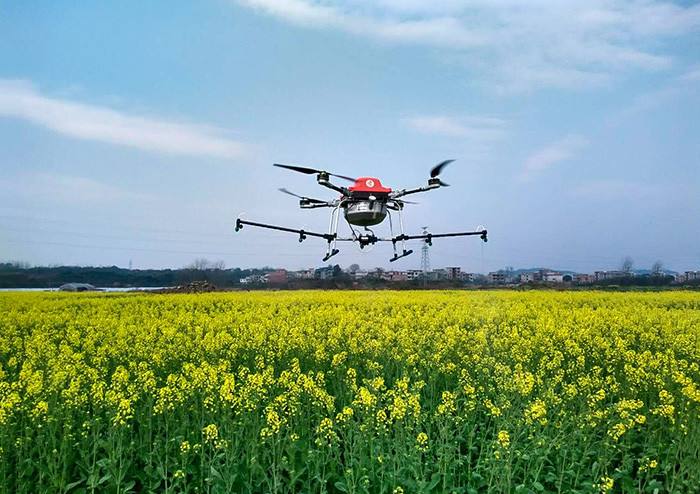Digital technology is rapidly changing traditional agricultural production, rural ecology, and farmers’ lives. In the future, unmanned farms and digital villages are not only the trend of social development; It is also an important support for ensuring food security and promoting rural revitalization.
Recently, the first production oriented vegetable unmanned farm summary conference in Beijing was held at the Yangfang Town Government in Changping District, Beijing. The project was jointly completed by multiple units such as the Science and Technology Commission of Changping District, the Yangfang Town Government of Changping District, and the Beijing Academy of Agricultural and Forestry Sciences. Its successful implementation provides an intelligent and digital solution to address prominent issues such as the aging of agricultural workers and non-standard operations.
In the Golden Sun Farm located in Yangfang Town, Changping District, the chili peppers have neat ridges, abundant plants and fruits, and are growing well. Before planting vegetables, we had to first treat the soil. Plowing, rotating, ridging, and fertilizing all rely on manual operations, which consumes a lot of time and energy. “Farm manager Xie Fengjun said,” Currently, on the farm, everything from rotating, plowing to canal shaping is operated by drones. Not only does the crop planting look neat and beautiful, but it also greatly saves labor costs. During the first batch of cabbage planting, a total of 76230 yuan in labor costs is saved
The No. 1 central document of the Central Committee of the CPC in 2022 pointed out that we should hold the bottom line of national food security and further promote rural revitalization. In order to fully protect the “grain bag” and promote land reclamation in multiple areas, we will return the “good farmland” to the “grain field”. The production type vegetable unmanned farm located in Yangfang Town is a benchmark experimental demonstration project for unmanned vegetable cultivation on the “returning forest to farmland” plot. It has overcome difficulties in initial investment fundraising, converting forest to farmland, unconventional stubble planting, and managing and transporting the impact of the epidemic, and completed the entire process of unmanned operation experiments. At present, more than 70% of the total area of 47.2 acres of farms have achieved digital autonomous management. After testing, the first crop of cabbage that has reached commercialization level has achieved a yield of 5000 jin per mu, which also means that the production type vegetable unmanned farm has achieved success.
We completed the unmanned harvesting of 10 acres of cabbage at the end of July, “said Wu Huarui, Deputy Director and Researcher of the Information Center of the Beijing Academy of Agriculture and Forestry, “There are more than 30 mu of peppers in the farm. At present, the test team mainly monitors the growth of peppers through the field inspection robot to prevent the spread of pests and diseases in rainy weather, and uses the self-propelled spray bar spray to achieve spraying. It is expected that the peppers will be harvested by the end of October.”







Please sign in to comment
register